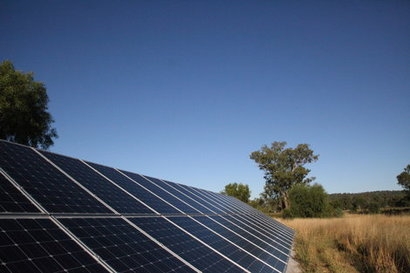
The government response confirms the government’s decision to implement a series of amendments to the scheme ahead of Allocation Round 4, including:
Introduction of a third, offshore wind-only pot in next year’s allocation round
Updating the 2014 Community Benefits and Engagement Guidance for Onshore Wind
Introduction of separation definition and administrative strike price for floating offshore wind projects
Exclusion of coal-to-biomass conversion projects from future CfD allocation rounds
Extension of the negative pricing rule for future CfD contracts so that CfD generators are not paid when ‘day ahead’ electricity market prices are negative
Strengthening the existing Supply Chain Plan (SCP) process
Introduction of a series of further, technical changes to the operation of CfD allocation rounds
The government has also today launched a further consultation to invite views on:
More detailed changes to the Supply Chain Plan policy, which are designed to increase the clarity, ambition, and measurability of developers’ commitments, and ensure those commitments are delivered
Several proposed drafting changes to the CfD contract to implement decisions taken in the government response
Several proposed minor and technical changes to improve the operation and clarity of the contract
The government received around 260 individual written responses to its consultation, with a further 800 plus responses coordinated by environmental group Biofuelwatch which campaigns against coal to biomass conversion of power plants.
The responses were from a range of organisations including
Renewable electricity developers and associated supply chain firms
Trade associations
Local and devolved governments
Academics and think tanks
Members of the public
The consultation sought views on a number of proposed changes to the Contracts for Difference (CfD) scheme to ensure it continues to support low carbon electricity generation at the lowest possible cost to consumers.
CfDs incentivise investment in renewable energy by providing developers of projects with high upfront costs and long lifetimes with direct protection from volatile wholesale prices, and they protect consumers from paying increased support costs when electricity prices are high.
The consultation proposes changes to the CfD scheme that would, if implemented, apply to contracts awarded through future allocation rounds, the next of which is planned to open in 2021 subject to any required state aid approval of planned changes.
The proposed changes relate to:
Delivering the UK’s 2050 net zero emissions target
Bioenergy
Allocation round design
Improving the operation of the CfD
Supporting a smart, flexible system
The consultation also invites views on some minor potential changes to the Contracts for Difference (Allocation) Regulations 2014 to further improve their operation and clarity.
An Impact Assessment has been published alongside the consultation to provide an assessment of the costs and benefits of the key aspects of these changes should they be implemented.
The government has announced plans to extend the delivery period of CfDs to 2035 and an intention to move forward on a proposal to allow flexibility components to be included in future allocation rounds.
Although it hasn’t announced any changes regarding energy storage assets, the government has indicated an intention to avoid creating barriers for energy storage to deliver system flexibility.
Many respondents to the consultation echoed the Solar Trade Association (STA)’s call for more frequent auctions to accommodate solar PV’s shorter project development timeframes, and appealed for certainty that Pot 1 technologies (of which solar PV is one) would be eligible to compete in future allocation rounds, stating that these could aid economic recovery and help the UK meet its climate targets.
“Today’s announcement opens the door to significant numbers of subsidy-free solar projects being developed over the next few years” said STA Chief Executive Chris Hewett. “There is plenty of detail to dig into here, but the overall picture is a positive one. In particular we are pleased to see an extension of the delivery period and welcome the announcement of a call for evidence on support for renewables. Many responses, including our own, highlighted the merit of having more frequent auctions, and this is something that the Government must implement if it is to maximise the economic and climate potential of renewables. Large solar projects can be deployed rapidly, offering a swift, job intensive contribution to a green economic recovery.”
Solar is the UK’s most popular energy technology, and more than 3GW of projects in the planning pipeline stand ready for development. It is, by the Government’s own forecasts, set to be the cheapest form of new electricity generation for the coming years.
The STA continues to call on the Government to pledge a target of 40 GW of solar by 2030, triple today’s capacity, to support a green recovery and the transition to a net zero economy.
For additional information:
Department for Business, Energy and Industrial Strategy (BEIS)

